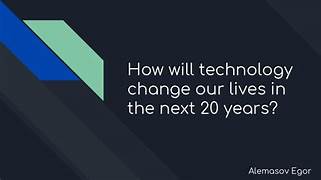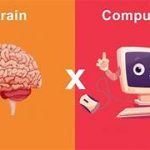How Will Technology Change Our Lives in Twenty Years?
As we peer into the crystal ball of the future, the pace of technological innovation promises to reshape our lives in profound ways. By 2045, the world will be nearly unrecognizable compared to today, as advancements in artificial intelligence, biotechnology, quantum computing, and renewable energy converge to revolutionize the human experience. This article explores the potential impact of these developments across various facets of life, from healthcare and transportation to work and personal relationships.
Healthcare: A Revolution in Personalized Medicine
One of the most transformative changes will occur in healthcare. Advances in biotechnology and artificial intelligence (AI) will enable personalized medicine on an unprecedented scale. Genetic editing technologies like CRISPR will cure hereditary diseases and eradicate conditions such as sickle cell anemia and cystic fibrosis. Meanwhile, AI-driven diagnostic tools will detect diseases at their earliest stages, potentially before symptoms even manifest.
Wearable health devices will evolve into implantable biosensors, continuously monitoring vital signs and transmitting data to healthcare providers in real-time. This will make preventive care the cornerstone of medical practice, significantly extending human lifespan and quality of life. Additionally, robotic surgeons equipped with machine learning algorithms will perform complex surgeries with unparalleled precision, minimizing risks and recovery times.
Transportation: Autonomous and Sustainable Mobility
The way we move will undergo a seismic shift as autonomous vehicles (AVs) dominate roads, skies, and even waterways. By 2045, personal car ownership may become a relic of the past, replaced by shared autonomous transport networks. Electric and hydrogen-powered vehicles will eliminate carbon emissions, making transportation more environmentally friendly.
Urban landscapes will transform with the rise of aerial mobility solutions like flying taxis and drone delivery systems. Hyperloop systems, capable of reaching speeds of over 700 mph, will redefine long-distance travel, making intercity commutes faster than ever before. Moreover, AI-driven traffic management systems will optimize traffic flow, drastically reducing congestion and commute times.
The Future of Work: Automation and Human-AI Collaboration
Work as we know it will evolve dramatically. Routine and repetitive tasks will be fully automated, freeing humans to focus on creative, strategic, and empathetic roles. AI will become a collaborative partner, augmenting human capabilities rather than replacing them entirely. Jobs in AI ethics, machine training, and augmented reality design will flourish.
Remote work will continue to expand, supported by advancements in virtual and augmented reality (VR/AR). Virtual offices and holographic meetings will allow teams to collaborate seamlessly across continents, making physical office spaces less essential. This decentralization of work could lead to a more balanced lifestyle, as individuals gain the flexibility to work from anywhere.
Education: Immersive and Adaptive Learning
The classroom of 2045 will be a far cry from today’s chalk-and-talk model. Adaptive learning platforms powered by AI will tailor educational content to individual students’ needs, ensuring no one is left behind. AR and VR will provide immersive learning experiences, allowing students to explore historical events, conduct scientific experiments, or even practice surgery in a virtual environment.
Global access to high-quality education will improve, thanks to widespread internet connectivity and affordable digital devices. Language barriers will diminish with real-time AI translation tools, fostering greater cultural exchange and collaboration. Lifelong learning will become the norm, as rapid technological changes require individuals to continuously acquire new skills.
Human Relationships: The Role of Technology in Social Interaction
Technology will redefine how we connect with others. Advanced social platforms and immersive VR experiences will enable people to “meet” in digital spaces that feel as real as physical ones. Haptic technology—which allows users to feel tactile sensations in virtual environments—will make long-distance interactions more intimate, whether for personal relationships or professional collaborations.
However, this hyperconnectivity may also present challenges. Issues like digital addiction, cyberbullying, and privacy concerns could intensify, requiring robust regulatory frameworks and ethical considerations. The balance between virtual and physical interactions will be critical in maintaining healthy relationships and social well-being.
The Smart Home: Automation and Sustainability
Homes in 2045 will be fully integrated with AI-driven smart systems that learn and adapt to occupants’ habits. Appliances will communicate with each other, optimizing energy usage and minimizing waste. Renewable energy sources, such as solar panels and advanced energy storage solutions, will power households, reducing dependence on fossil fuels.
Virtual assistants will evolve into proactive household managers, capable of anticipating needs and managing everything from groceries to climate control. Homes will also double as wellness hubs, equipped with sensors that monitor indoor air quality, sleep patterns, and even mental health, providing tailored recommendations for a healthier lifestyle.
Entertainment: Immersion and Interactivity
The entertainment industry will enter a new era of immersion and interactivity. Holographic displays and advanced VR systems will blur the line between reality and fiction, offering experiences that engage all five senses. Movies and video games will become participatory, allowing users to influence storylines and outcomes.
Artificial intelligence will enable hyper-personalized content recommendations, creating a unique entertainment experience for each individual. Live events, such as concerts and sports, will be accessible through virtual reality, offering front-row experiences from the comfort of home. The concept of entertainment will expand, encompassing collaborative and social activities in shared virtual worlds.
Ethical and Societal Considerations
With great technological power comes great responsibility. The rapid pace of innovation will raise ethical questions about privacy, data ownership, and the role of AI in decision-making. Governments and organizations will need to establish robust ethical frameworks to ensure technology benefits humanity without exacerbating inequalities or eroding individual freedoms.
Cybersecurity will become a paramount concern, as interconnected systems create new vulnerabilities. Quantum computing, while offering immense computational power, will also pose risks to current encryption methods, necessitating advancements in quantum-safe security measures.
The Environment: Technology as a Catalyst for Sustainability
Technology will play a pivotal role in addressing environmental challenges. Advanced materials and nanotechnology will enable more efficient resource usage and waste recycling. AI-driven climate modeling will improve our ability to predict and mitigate natural disasters, while renewable energy innovations will help combat climate change.
Agriculture will be revolutionized by vertical farming and lab-grown meat, reducing land and water usage. Autonomous drones and sensors will optimize crop yields, ensuring food security for a growing global population. By 2045, sustainability will no longer be an option but a necessity, and technology will be the key enabler.
The Unknown Frontier: Space Exploration and Beyond
Humanity’s gaze will extend beyond Earth as space exploration becomes more accessible. Advances in propulsion technology will make interplanetary travel feasible, with the possibility of colonizing Mars and beyond. Private space companies will play a significant role, driving innovation and reducing costs.
Space-based industries, such as asteroid mining, will emerge, providing access to abundant resources and alleviating terrestrial scarcity. Meanwhile, satellites equipped with advanced sensors will improve global communication, navigation, and Earth monitoring, fostering a deeper understanding of our planet.
Conclusion: A Future of Possibilities
The next twenty years will usher in an era of unprecedented change, reshaping every aspect of our lives. While the potential benefits are immense, navigating this technological transformation will require careful planning, ethical considerations, and a commitment to inclusivity. By harnessing the power of innovation responsibly, humanity can create a future that is not only technologically advanced but also equitable, sustainable, and deeply connected.


